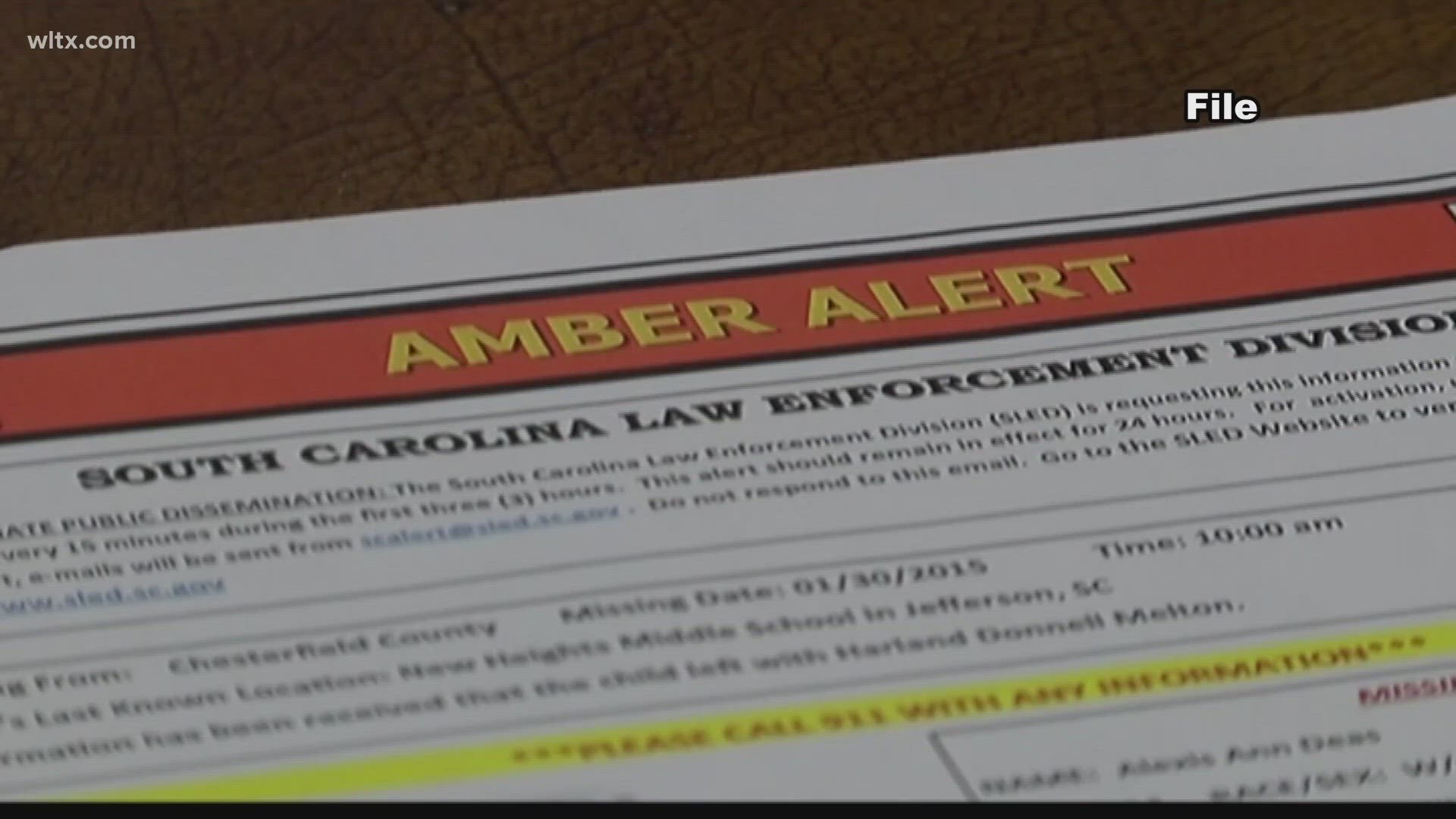COLUMBIA, S.C. — Every day, children are brought across state lines - or even out of the country - in violation of their parent's custody or visitation agreement.
A House panel on Tuesday advanced a bill aimed at preventing child abductions by giving the court more power to order prevention measures.
About 200,000 children abducted each year are taken by a parent or family member in the U.S., according to the National Center for Missing and Exploited Children.
The Center also reports that in 2020, 63 percent of all Amber Alerts that were issued were for family abduction cases.
“Preventing abduction will always be in the child’s best interest," said Legislative Counsel for the Uniform Law Commission Libby Snyder.
Synder testified in front of a House Panel Tuesday in support of the Child Abduction Prevention Act, which provides courts with uniform guidelines to follow before or during custody disputes and divorce proceedings.
These include imposing travel restrictions, prohibiting the individual from removing the child from the State or other set geographic area, placing the child’s name in the United States Department of State’s Child Passport Issuance Alert Program, or requiring the individual to obtain an order from a foreign country containing identical terms to the child-custody determination
“It would give the judge an opportunity to issue an ex partay order that requires when the child is located with that parent to return the child to the state, in this case being South Carolina," said Rep. Val Guest (R-Horry), who's been practicing Family Law in the state for more than 30 years.
It also includes risk factors of children being abducted for judges to consider including previous abductions, attempts to abduct the child, or threats of abduction, as well as signs of general abuse including domestic violence, negligence, or refusal to obey a child-custody determination.
So far, 14 other states have signed this proposal into law.
A separate proposal advanced Tuesday would prohibit Unregulated child custody transfers in South Carolina. That's when a parent or guardian of a child transfers custody without state agency or court oversight.
The Department of Social Services said they have several cases where children are brought internationally to South Carolina and end up in the custody of the state
Snyder told lawmakers a custody transfer to an unrelated person who is unknown to the child might be unfit or unable to care for the child. It could also exacerbate existing psychological problems for the child.
In some cases, the child might be exposed to a child molester or sex trafficker, Snyder said.
The bill also allows law enforcement to investigate alleged illegal transfers and gives adoptive families information and training regarding children with special needs.
“We want to give them very clear authority to investigate so that we can help protect those children," said Snyder.

